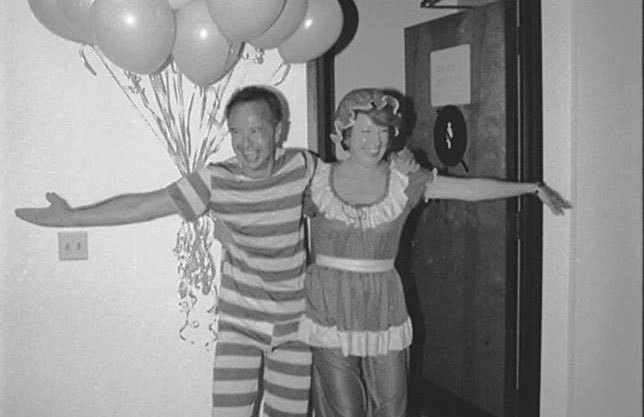Office Perks are There to Keep You at Work
February 28, 2020 •
On Reddit, /u/fruitynutter asks about burnout in the Seattle tech industry. And /u/non-member responds claiming:
Microsoft takes pretty good care of their folks… cafeterias with excellent food that’s super cheap, free coffee/soda/juice/etc, and carts with free beer at the end of the week.
None of these things are things that a company does to “take care of” their employees. These are all things that companies do to keep you at work longer. The more that the company’s facilities can be the center of your social life as well as your work life, the more work you will incidentally do while you’re “not working”.
INT. CAFETERIA - EVENING
Employee 1 is having dinner at the company cafeteria after work before
going home for the evening because they haven't had time to do any
grocery shopping.
Employee 1 notices Employee 2 entering the cafeteria seating area with
their own tray of food for dinner. Employee 1 waves to Employee 2,
inviting them to join.
Employee 2 smiles and walks over, sitting across the table from
Employee 1.
**Employee 1:** Hey, how was your day? I didn't see you because I was
in back-to-back meetings most of the day.
**Employee 2:** It was LONG. I was in a marathon pair debugging session
with a teammate. We JUST finished and pushed the code to CI. I was just
going to grab something quick to eat, but I'm glad you're here to chat
with.
**Employee 1:** I know exactly what you mean ...
The two employees exchange weary, understanding glances while eating
quickly like starved hyenas because they didn't have a chance to have
a real lunch due to their respective obligations.
**Employee 1:** Hey, while I've got you here ... I've been meaning to
ask you about what you think about the latest feature proposal ...
Startups are also a huge source of burnout, to be certain. But even though places like Microsoft, Amazon, Google, and Facebook do it slower, burnout is still happening.
I worked at Intel in the late 90s in the Information Technology group. The Vice President of IT was a woman named Carlene Ellis. This is a picture of her and Andy Grove celebrating the opening of the first showers for employees at Intel in 1988:
She worked in Human Resources at that time and eventually became VP of HR in 1990 at least partially because she sold the idea of exercise facilities, showers, and eventually cafeterias at Intel offices and facilities as a way to keep people at work longer and thereby get them to do more work. How do I know this? Because she told me that’s why they did it when I was working for her in the late 90s.1 Before there was a cafeteria at the office, people would take 15 minutes to go someplace to eat off site, take their one hour lunch break, then take another 15 minutes to get back to their desk. With a cafeteria, they’d take five minutes to go to the cafeteria, take 30 minutes eating, probably with coworkers talking about work, then five minutes getting back to their desk. Even with the extra expense of the cafeteria space, the people they had to hire to staff the cafeteria, and so on, they made more profit with the cafeterias than without.
Companies don’t offer you these perks to make you happier as a person. They offer these perks to make you happier to keep working because it is easier to stay at work than to take real breaks, go home to spend time with family or friends, or pursue non-work hobbies.
Companies that actually take care of their employees do things like pay their employees a truly living wage, have generous sick, vacation, and leave policies, have truly flexible work schedules by facilitating asynchronous and remote work, have generous mental and physical health benefits, and more. Notice that these are all benefits that affect or improve your non-work life, not your time at work.
Please keep these things in mind when looking for work in any industry but especially the tech industry.
-
Don’t get me wrong. I have immense respect for Carlene Ellis as a person and as someone I worked for. Even though I only worked for her for a short time and indirectly, our few interactions taught me a lot about empathetic leadership. ↩
